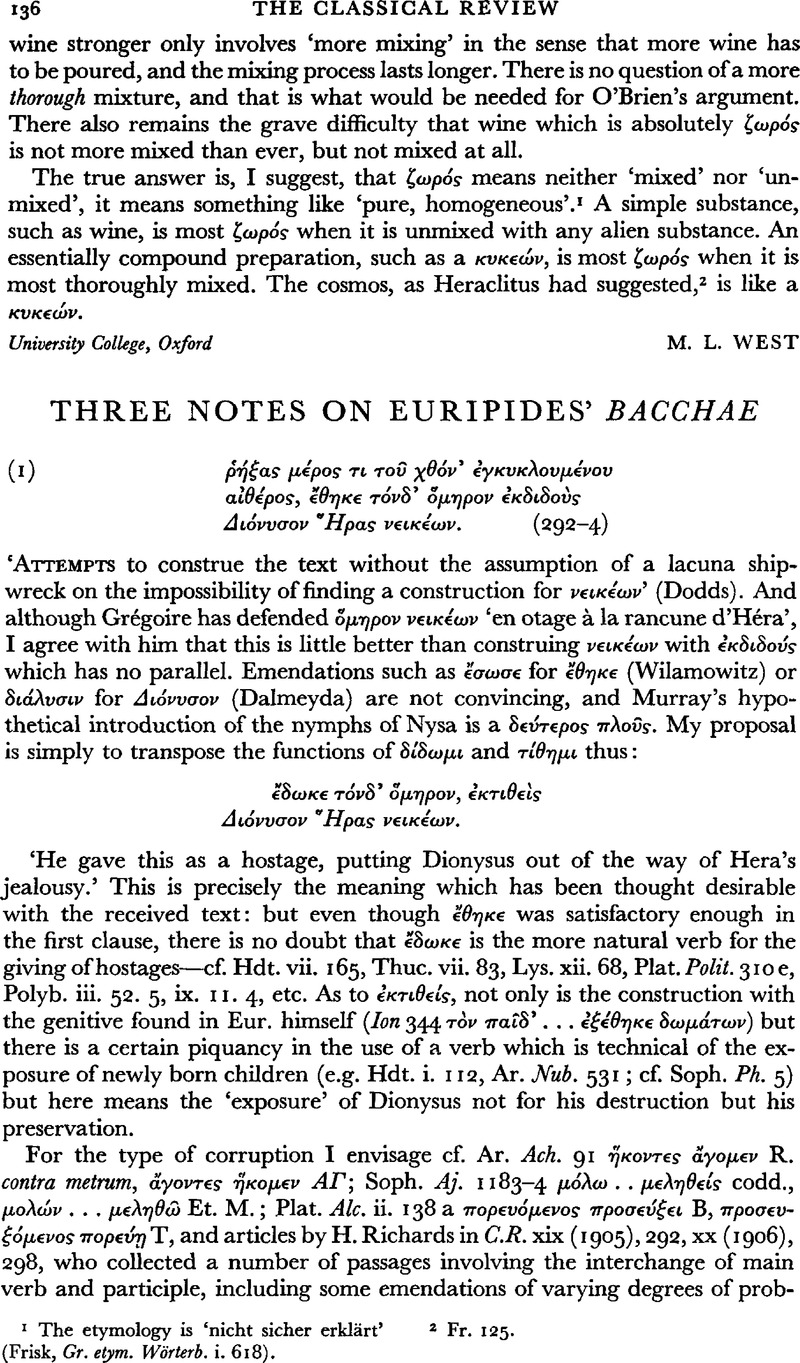No CrossRef data available.
Article contents
Three notes on Euripides' Bacchae
Published online by Cambridge University Press: 27 February 2009
Abstract

- Type
- Review Article
- Information
- Copyright
- Copyright © The Classical Association 1966
References
1 Professor Dodds, to whom I am grateful for reading and commenting on these notes, draws my attention also to the ‘spoonerism’ in Plat. Gorg. 484 b 7 βια⋯ων τ⋯ δικαι⋯τατον (BTWF) for δικαι⋯ν τ⋯ βιαι⋯τατον.
2 Which, Professor Dodds reminds me, splits the tribrach incorrectly for normal tragic practice, although there are a number of examples in late plays.
3 〈κ⋯σμος〉 Farquharson.
4 In the ant. (1002–4) a possibility, which produces dochmiac corresponsion, is Dodds's suggestion γνωμ⋯ν σωфρόνισμα θ⋯νατος ⋯πρ⋯φατος / ἐς τ⋯ θε⋯ν ἴφυ. If MS. ⋯προφ⋯σιστος is retained, I suggest -στος ⋯κ θε⋯ν ἔφυ in 1003, with θε⋯ν monosyllabic by synizesis, and assuming that τ⋯ was added when ⋯κ was misread as εἰς. ⋯κ c. gen. of the source of death, fate, or the like, is very common, especially in tragedy, e.g. of ν⋯μεσις, Hdt. i. 34 (⋯κ θεο⋯), Soph. Ph. 518 (⋯κ θε⋯ν codd.); of μοῖρα, Eur. I.A. 1605 (⋯κ θε⋯ν—cf. Hipp. 1111, Aesch. Eum. 392); of τ⋯χη, Soph. Ph. 1316–17 (⋯κ θε⋯ν); of ⋯ν⋯γκη Eur. Ph. 1763 (⋯κ θε⋯ν—cf. Soph. O.C. 1693); of θ⋯νατος, Hom. Od. xvi. 446–7, Eur. Rh. 607, Ion 864. Translate ‘for him death at the hands of the gods is an implacable(?) chastener of his ambitions.’ For the notion cf. Od. xvi. 447 θε⋯θεν δ' οὐκ ἕστ' ⋯λ⋯ασθαι (sc. θ⋯νατον).
5 Examples from the immediate vicinity of the Bacchae itself—913, 955, 960, 971.


